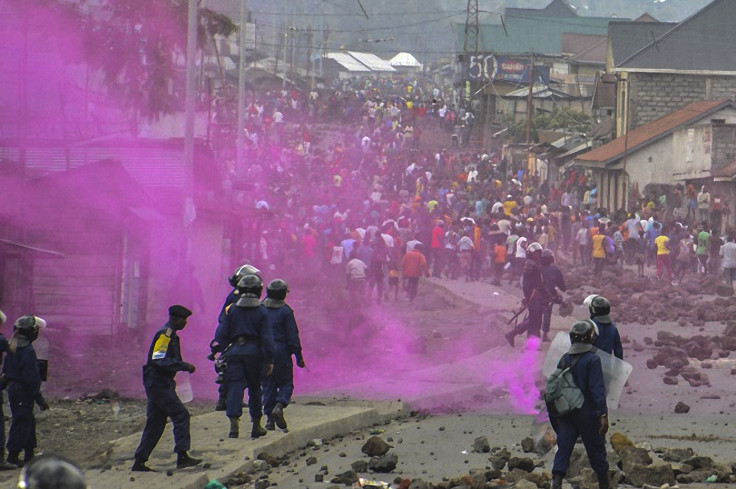EU needs to impose targeted sanctions to prevent DRC from spiralling out of control, says HRW
European Parliament has also repeatedly called for the EU to implement targeted sanctions.

A rights organisation is urging the European Union (EU) to impose targeted sanctions against senior security forces, intelligence officers and government officials responsible for a violent crackdown in the Democratic Republic of Congo (DRC).
Gripped by months of tension, the DRC is currently in the midst of a political crisis.
Human Rights Watch (HRW) has urged the EU's Foreign Affairs Council to support strong measures, including the application of targeted sanctions, in its conclusions on Congo, due to be adopted on 17 October 17. This comes as the European Parliament repeatedly calls for the EU to implement targeted sanctions.
This, the organisations said, could help prevent the situation in Congo from spiralling out of control in the coming weeks with potentially violent and widespread repercussions across the region.
In a statement, the organisation will distribute to member states in advance of the EU's Foreign Affairs Council meeting, the rights group urged the member states to prevent the worst-case scenarios after warning September's deadly events might prove to be a glimpse of developments in the coming weeks – on potentially a much larger scale.
"Imposing targeted EU sanctions against senior security force and intelligence officers and government officials responsible for the violent crackdown would send a strong signal that there are consequences for the repressive actions and that the declarations from the EU and its member states are not just empty threats," the group said in its message.
Sanctions could help deter further violence, rein in the most abusive units and commanders and push Kabila to step down peacefully. "The time to act is now – before there are more bodies on the streets and it's potentially too late to convince President Kabila to change course," the statement read.
In September, the United States imposed sanctions on two top Congolese security officials accused of threatening democracy and repressing the political rights and freedoms of people.
DRC: On the brink of civil war?
French Foreign Minister Jean-Mark Ayrault last month said the DRC is on the brink of a civil war.
Less than 10 weeks before the 19 December deadline for when President Joseph Kabila is due to step down at the end of his constitutionally mandated two-term limit, Congolese authorities are said to have deliberately stalled plans for the organisation of elections scheduled to be held in November 2016.
Because the polls will not take place until December 2018 for logistical reasons, President Kabila said last month he intends to remain president after Congo fails to ensure a successor is elected before his second term ends.
Security forces responded to nationwide protests against the electoral commission's failure to convoke presidential elections with excessive and unnecessary lethal force, killing at least 56 people in the capital, Kinshasa.
Most of the victims were killed when security forces fired on crowds of protesters. Others were killed when the security forces burned at least three opposition party headquarters. Many of the bodies of those killed were taken away by the security forces, in an apparent effort to hide the evidence and prevent families from organising funerals. Some of the bodies were later dumped in the Congo River, and several bodies were later found washed up on the river's shores in Kinshasa's Kinsuka neighbourhood.
The DRC responded to earlier calls from President Francois Hollande that elections had to be organised to replace outgoing Kabila, stating that Congo was not a territorial extension of Paris. Kabila's government said France should stop meddling in the affairs of the country.
Ten days ago, the Congolese Presidential Majority said it was "deeply and legitimately concerned" after the United Nations announced it was placing the DRC under surveillance following September's deadly violence.
© Copyright IBTimes 2025. All rights reserved.






















